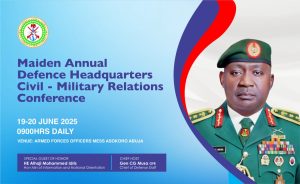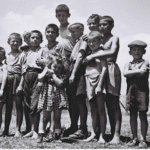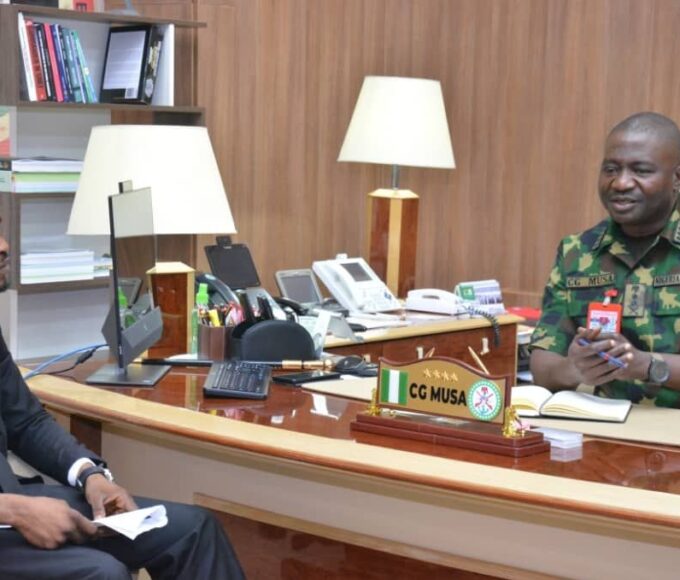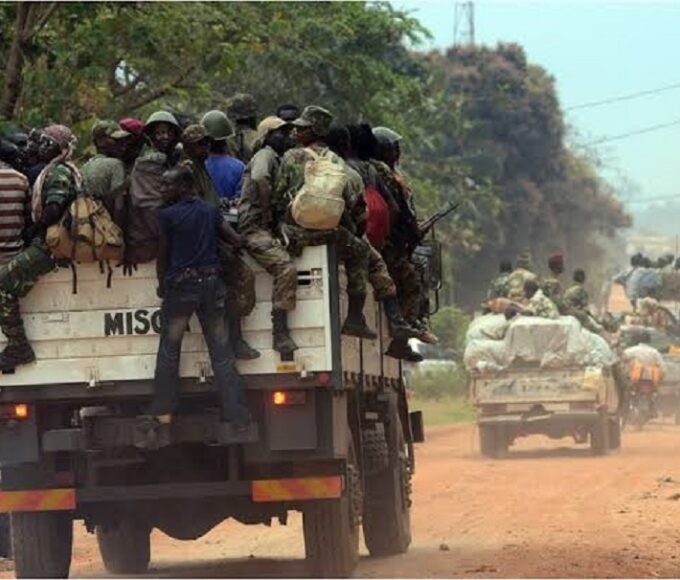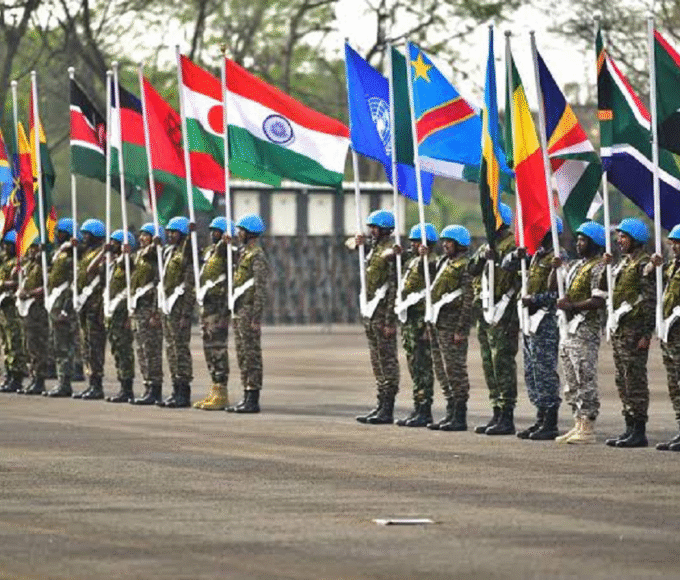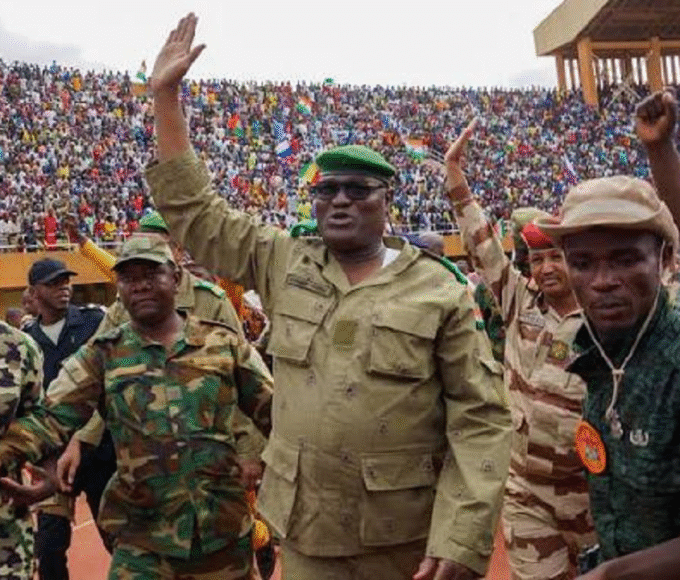General Musa Leads Civil-Military Reset in Nigeria
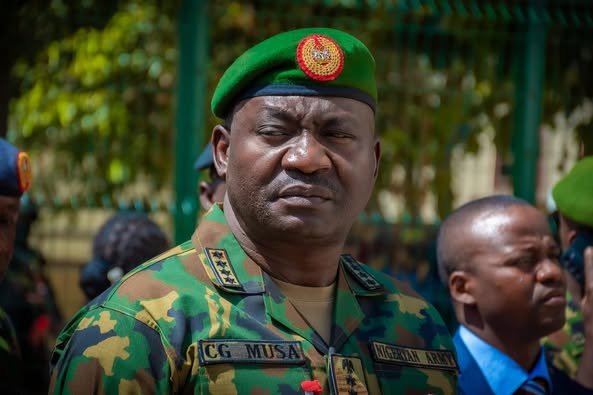
Under General Musa’s Watch, Nigeria’s Military Reimagines Civil-Military Relations at Landmark Conference
In a decisive and visionary shift, Nigeria’s Chief of Defence Staff, General Christopher Gwabin Musa, is championing a groundbreaking effort to redefine the relationship between the military and the civilians it serves. The Defence Headquarters has launched the Maiden Annual Civil-Military Relations Conference, held from 19 to 20 June 2025 at the Armed Forces Officers Mess in Asokoro, Abuja—a pivotal moment in the nation’s evolving security strategy.
With the theme “Winning Hearts and Minds: Non-Kinetic Approaches to National Security,” the conference reflects General Musa’s people-first philosophy—one that elevates trust, cooperation, and empathy above sheer military might in confronting Nigeria’s multifaceted security challenges.
“The Chief of Defence Staff has always emphasised that the people are at the heart of our operations,” stated Rear Admiral Olusanya Bankole, Chief of Defence Civil-Military Relations. “We are not an occupying force; we come from the same communities we serve. This conference reaffirms the truth that national security cannot thrive without public trust.”
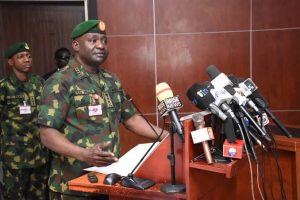
In his keynote address, General Musa delivered a powerful message:
“This initiative urges us to think beyond weapons and warfare. We must invest in human security, build resilient communities, and promote the idea that every Nigerian—uniformed or not—has a stake in peace and prosperity.”
This is far more than a ceremonial gathering. The conference serves as a cornerstone of a broader, long-term strategic agenda, drawing inspiration from global models where non-kinetic strategies have delivered transformative outcomes.
Learning from Global Case Studies
Across Latin America, Southeast Asia, and East Africa, effective civil-military partnerships have proven to be game-changers in rebuilding peace and restoring legitimacy.
In Colombia, the “Hearts and Minds” programme enabled military units to collaborate with civil society to reintegrate former rebels, deliver basic services, and rebuild trust—especially in post-conflict zones.
Indonesia’s TMMD programme transformed soldiers into agents of development, deploying them to construct schools, roads, and clinics in underserved regions, reshaping public perception of the military.
In Kenya, following the Garissa attacks, the government embraced soft-power engagements—medical missions, educational support, and interfaith dialogues—that successfully restored confidence in security agencies.
“These are not merely foreign success stories,” Rear Admiral Bankole emphasised. “They offer blueprints we can adapt to our national context. This conference is a step toward creating Nigeria’s own model of success.”

A Timely, Homegrown Response
With Nigeria continuing to confront insurgency, banditry, and separatist threats, this initiative arrives at a critical juncture. Rebuilding trust in communities marked by trauma and tension has become not just a moral necessity but a strategic imperative.
By bringing together stakeholders from civil society, traditional institutions, development agencies, and the security sector, the Defence Headquarters is making a bold statement: national security is everyone’s responsibility.
Institutionalising Civil-Military Dialogue
This is not a one-off event. The conference will now be held annually as a permanent platform for engagement and reflection. Civil-military relations will no longer be reactive or symbolic—they will be systematic, sustained, and deeply embedded in Nigeria’s evolving security doctrine.
Under General Musa’s leadership, the Armed Forces are being redefined as a more people-centred institution—one that listens as much as it leads.
In today’s complex security landscape, where legitimacy, intelligence-sharing, and local cooperation are paramount, this shift could become Nigeria’s most potent strategic advantage.
In General Musa’s Nigeria, the military is not above the people. It is among the people. With the people. For the people.
King Richard Igimoh, Group Editor ALO
King Richard Igimoh, Group Editor African Leadership Organisation is an award-winning journalist, editor, and publisher with over two decades of expertise in political, defence, and international affairs reporting. As Group Editor of the African Leadership Organisation—publishers of African Leadership Magazine, African Defence & Security Magazine, and Africa Projects Magazine—he delivers incisive coverage that amplifies Africa’s voice in global security, policy, and leadership discourse. He provides frontline editorial coverage of high-profile international events, including the ALM Persons of the Year, the African Summit, and the African Business and Leadership Awards (ABLA) in London, as well as the International Forum for African and Caribbean Leadership (IFAL) in New York City during the United Nations General Assembly.
Recent Posts
Categories
- Air & Aerospace17
- Border Security15
- Civil Security6
- Civil Wars4
- Crisis5
- Cyber Security8
- Defense24
- Diplomacy19
- Entrepreneurship1
- Events5
- Global Security Watch6
- Industry8
- Land & Army9
- Leadership & Training5
- Military Aviation7
- Military History27
- Military Speeches1
- More1
- Naval & Maritime9
- Policies1
- Resources2
- Security12
- Special Forces2
- Systems And Technology9
- Tech6
- Uncategorized6
- UNSC1
- Veterans7
- Women in Defence9
Related Articles
Why General C.G. Musa Is the Right Defence Minister for Nigeria—Right Now
President Bola Tinubu’s nomination of General Christopher Gwabin Musa (rtd.) as Minister...
ByKing Richard Igimoh, Group Editor ALODecember 2, 2025DIPLOMACY, PEACE & CIVIL SECURITY – CROSS-BORDER PEACE PACTS IN EAST AFRICA: SUCCESS OR FAILURE?
From the windswept Karamoja hills to the fishing villages of Lake Victoria,...
ByKing Richard Igimoh, Group Editor ALONovember 24, 2025INDIA’S GROWING MILITARY PARTNERSHIPS WITH AFRICA
India’s engagement with Africa is undergoing a quiet but powerful transformation. What...
ByKing Richard Igimoh, Group Editor ALOOctober 14, 2025ECOWAS MILITARY INTERVENTION IN NIGER: A TURNING POINT?
The coup d’état in Niger on July 26, 2023, marked a seismic...
ByKing Richard Igimoh, Group Editor ALOOctober 7, 2025





